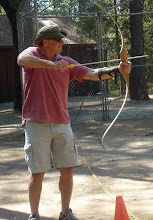
Guessing who his secret client was, and fearing he would be shot rather than paid, he led Saif straight to the Zintan Brigade."
The plans of both players were kind of confirmed when only 5.000 Euros were found in the vehicle...
Sadly Saif himself defined the structure of this game, where the more Euros he offered the stronger the case was for betrayal. So much for the Ph.D. he got from the London School of Economics...
To be fair, Saif's degree was presumably obtained in exchange for a 1.5 Milion Pound donation to LSE, so he may have not attended Game Theory 101. I have not drawn the extended form game that LSE is playing in conferring bogus degrees to affluent ruling families, but at least LSE charged more than a tribal desert guide, and got the money in advance.
We can think about alternate payoffs he could have created instead of the failed game, or step back and realize that the game is not over. The captors have not turned the LSE doctor in, they are demanding a government role in exchange. I am not smart enough to predict the outcome of this game, but somehow I can visualize a Libyan rebel wearing an LSE toga in five years tops.








